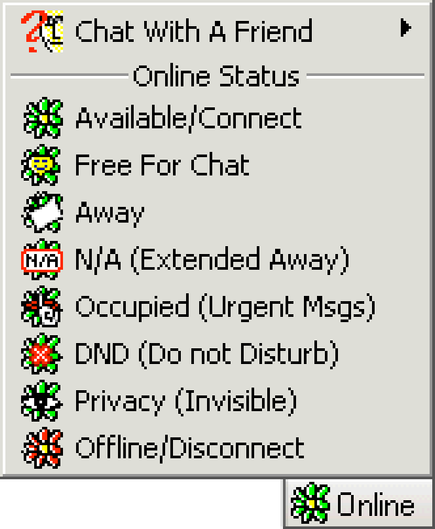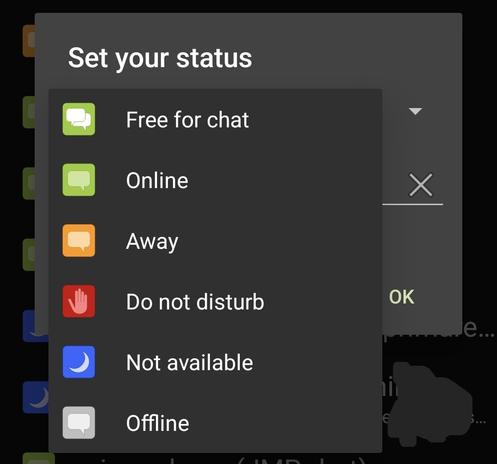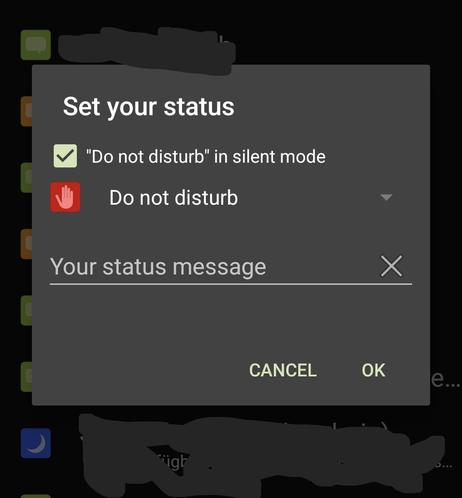@nina_kali_nina @reidrac
I was involved with Jabber (before it was called XMPP) shortly after that decision was made, so when people still remembered why.
A big part of it was that Jabber wanted to support lossless bridging between different IM systems. Being able to run an ICQ, MSNM, AIM, and so on bridge on your Jabber server meant users could switch immediately and retain their existing contacts. If only a subset of Jabber features worked with those contacts, that gave them an incentive to switch (and a good migration path). If only a subset of other-system features worked, that made it much harder.
The ICQ protocol had this fixed set of states. One of the other messengers had status messages as free-form text. As a result, XMPP built in both. And, because it was XML, you could also put a load of other things in (e.g. the music that you’re listening to).
I wrote a little daemon (20ish years ago) that would record status messages and push them to a microblogging platform (back when Twitter was one among many and not a clear winner), so you could use a Jabber client to publish microblogging things in realtime to your contacts and more slowly to other people.





 🇨🇦 CowMan 🇪🇺 🇺🇦 🇲🇽
🇨🇦 CowMan 🇪🇺 🇺🇦 🇲🇽
